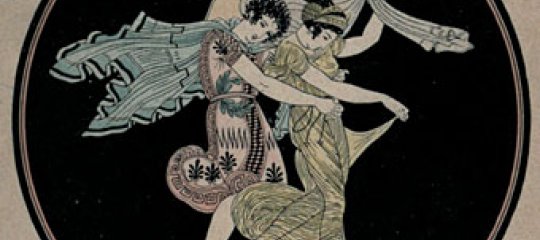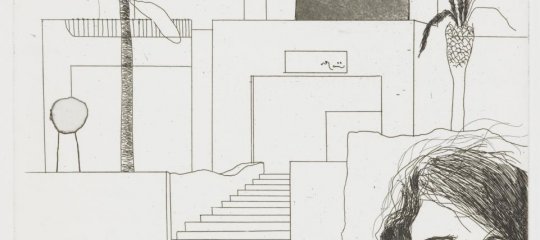Επιστολή διαμαρτυρίας για τη μη καταβολή επιμισθίου σε αποσπασμένους του εξωτερικού
Γιατί δεν αποδέχομαι την πρόταση του Υπουργείου Παιδείας
Τον τελευταίο καιρό υπάλληλος του Υπουργείου Παιδείας τηλεφωνεί προσωπικά σε έναν- έναν από τους συναδέλφους φιλολόγους που βρίσκονται με απόσπαση σε ιδρύματα τριτοβάθμιας εκπαίδευσης του εξωτερικού για να μεταφέρει την πρόταση της πολιτικής ηγεσίας του υπουργείου να συνεχίσουν,αν θέλουν, την απόσπασή τους στο εξωτερικό ΑΛΛΑ ΧΩΡΙΣ ΕΠΙΜΙΣΘΙΟ.
Θα άξιζε τον κόπο να μείνω στον τρόπο με τον οποίο το υπουργείο επικοινωνεί, αποφεύγοντας να αφήσει γραπτά ίχνη (έχει τις ταχυδρυδρομικές και ηλεκτρονικές διευθύνσεις όλων μας). Η κουτοπονηριά του συγκεκριμένου χειρισμού βρίσκεται στο να εμφανισθεί η τελική υπουργική απόφαση σαν παραχώρηση σε δική μας παράκληση, μια και εμείς στην προφορική πρόταση του υπουργείου οφείλουμε να απαντήσουμε με γραπτή αίτηση στην οποία « διατελούντες μετά τιμής....»να παρακαλούμε να μείνουμε.
Οι συνάδελφοι που συμμετείχαμε στο διαγωνισμό του 2002, βρισκόμαστε στο εξωτερικό ήδη με παράταση ενός χρόνου, πέρσι δεν έγινε η προκήρυξη του διαγωνισμού. Φέτος αποφασίστηκε να μη γίνει και πάλι ο διαγωνισμός και να καλυφθούν οι ανάγκες βάζοντας τους συναδέλφους να πληρώνουν στην ουσία από την τσέπη τους, μια και ο μισθός της Ελλάδας δε φτάνει για να ζήσει κανείς σε πόλεις της Ευρώπης, σε μερικές δε χώρες δεν επαρκεί ούτε για τη χορήγηση βίζας (εκεί οι συνάδελφοι δηλώνουν μισθό κι επιμίσθιο μαζί προκειμένου να τους επιτραπεί να εισέλθουν και να παραμείνουν στη χώρα).
Αν το υπουργείο ενδιαφερόταν πραγματικά για την προβολή της ελληνικής γλώσσας και του πολιτισμού θα προκήρυσσε και πάλι, ίσως μετά από αξιολόγηση του έργου που επιτελέστηκε, τις θέσεις αυτές, δίνοντάς μας τη δυνατότητα να ξαναλάβουμε μέρος ή αξιοποιώντας με κάποιο τρόπο την εμπειρία μας. Αντ’ αυτού θα προσπαθήσει να κρατήσει όσους μπορεί, πατώντας σε ανθρώπινες ανάγκες και υποχρεώσεις που πιθανόν να έχουν δημιουργηθεί εν τω μεταξύ και θα καλύψει , αν καλύψει,τα υπόλοιπα κενά όπως μπορεί, δίνοντας τη δουλειά στο πανεπιστήμιο σαν συμπλήρωμα για όσους δεν συμπληρώνουν ωράριο.
Η τακτική αυτή όχι μόνο ακυρώνει ό,τι στήθηκε μέχρι τώρα με λεφτά του ελληνικού δημοσίου, αλλά αποτελεί και τη χαριστική βολή εναντίον των νεοελληνικών σπουδών ΣΕ ΜΙΑ ΕΠΟΧΗ ΠΟΥ ΟΙ ΕΔΡΕΣ ΤΩΝ ΝΕΩΝ ΕΛΛΗΝΙΚΩΝ ΣΤΟ ΕΞΩΤΕΡΙΚΟ ΚΛΕΙΝΟΥΝ Η ΜΙΑ ΜΕΤΑ ΤΗΝ ΑΛΛΗ.
Για όλους αυτούς τους λόγους δεν πρόκειται να αποδεχτώ την εξευτελιστική πρόταση του υπουργείου. Τα 1050 ευρώ του επιμισθίου μου θα μπορούσα ίσως να τα βγάλω, μειώνοντας την απόδοσή μου στη δουλειά μου και ψάχνοντας μια δεύτερη δουλειά. Όμως το θέμα είναι πολιτικό:
-Δεν θα ήθελα η δική μου στάση να γίνει αφορμή για μια ολοκληρωτική κατάργηση του επιμισθίου. -Δεν θεωρώ ότι οφείλω να εξευτελίζομαι για τη «σωτηρία της Ελλάδας» όχι μόνο γιατί εγώ δεν ήμουν εκεί όταν τα τρώγανε, αλλά και γιατί ό, τι ήταν να συνεισφέρω εθελοντικά το έχω προσφέρει αποδεδειγμένα τόσα χρόνια με παράλληλη οργάνωση μαθημάτων ελληνικής σε φιλελληνικούς συλλόγους και δραστηριότητες κάθε είδους , ακριβώς γιατί θεωρούσα αποστολή την παρουσία μου στη Νάπολη. Το ίδιο έχουν κάνει και πολλοί άλλοι από τους συναδέλφους μου.
Είναι θλιβερό να αναγνωρίζεται η δουλειά μας από τους ξένους και η πατρίδα να μας απαξιώνει.
Γιάννενα, 20/7/2011 Αθανασία Αθανασοπούλου –φιλόλογος αποσπασμένη στη Νάπολη










